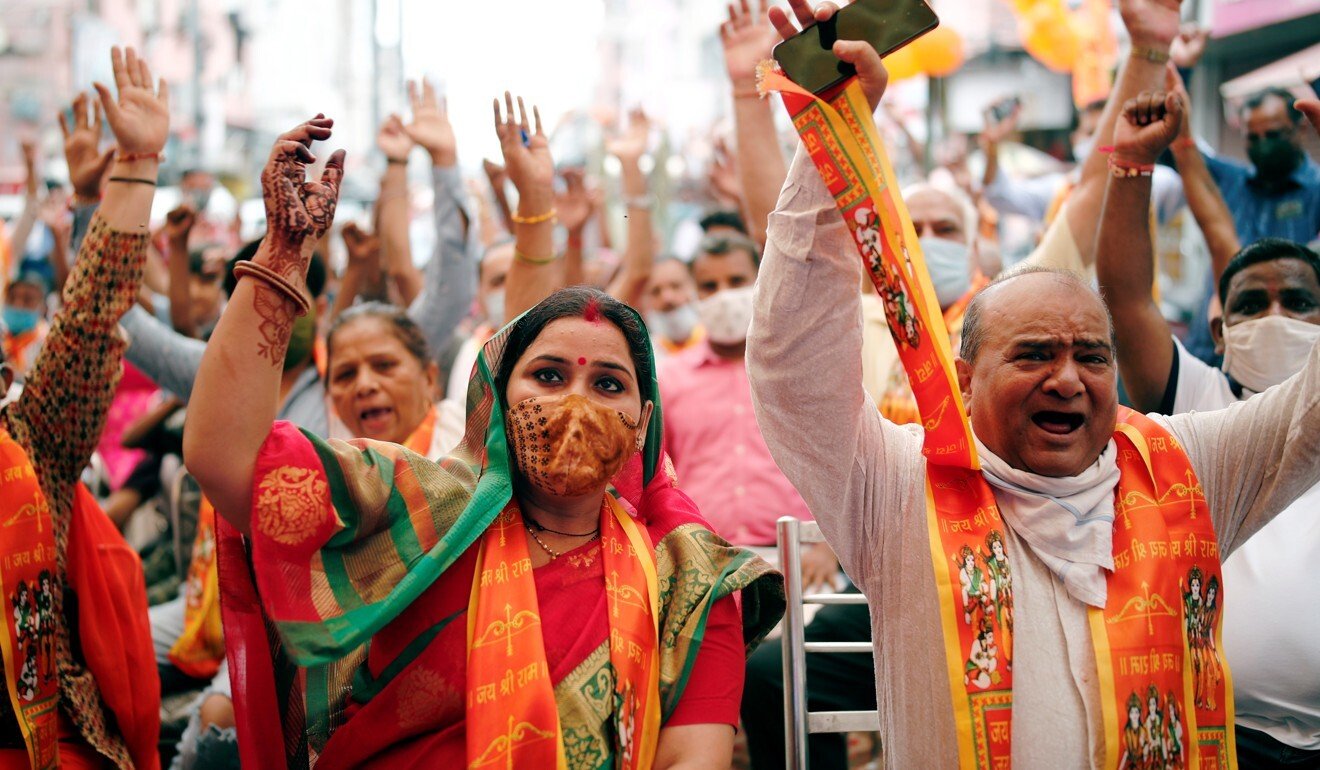
India PM breaks ground on Ayodhya temple as militants mark Kashmir anniversary with attack
- Narendra Modi laid the foundations of a new Hindu temple at the flashpoint holy site of a demolished mosque in Ayodhya
- The ceremony also marked a year since India’s parliament revoked the semi-autonomous status of its only Muslim-majority state

Militants attacked Indian security forces in Kashmir on Wednesday, defying a strict security lockdown on the first anniversary of the government’s scrapping of the disputed Himalayan region’s semi-autonomy.
The attack, which did not result in any casualties according to police, came as Indian Prime Minister Narendra Modi took centre stage at a ceremony in Ayodhya, Uttar Pradesh state, laying the foundations for a temple at a flashpoint holy site.
Ayodhya and divided Kashmir have been two of the most divisive communal issues of the past 30 years in India, and Modi has attempted to draw a line under both.
Hindus rejoiced as he broke ground on the long-awaited temple of their most revered god Ram at the site of a demolished 16th century mosque.

Modi offered prayers to nine stone blocks with lord Ram inscribed on them amid chanting of Hindu religious hymns to symbolise the start of construction of the temple, which is expected to take three and a half years.
He wore a traditional outfit of a gold kurta (a long shirt) and white dhoti (a loose cloth wrapped around his waist) along with his face mask.
Organisers said the ceremony was set on an astrologically auspicious date for Hindus but Wednesday also marked a year since India’s parliament revoked the semi-autonomous status of its only Muslim-majority state, Jammu and Kashmir.
The symbolism was impossible to miss since Modi’s Hindu-nationalist Bharatiya Janata Party (BJP) had long pledged in its manifesto to strip disputed Kashmir of its autonomy and to build a temple to the Hindu god Ram where the Mughal-era mosque once stood.
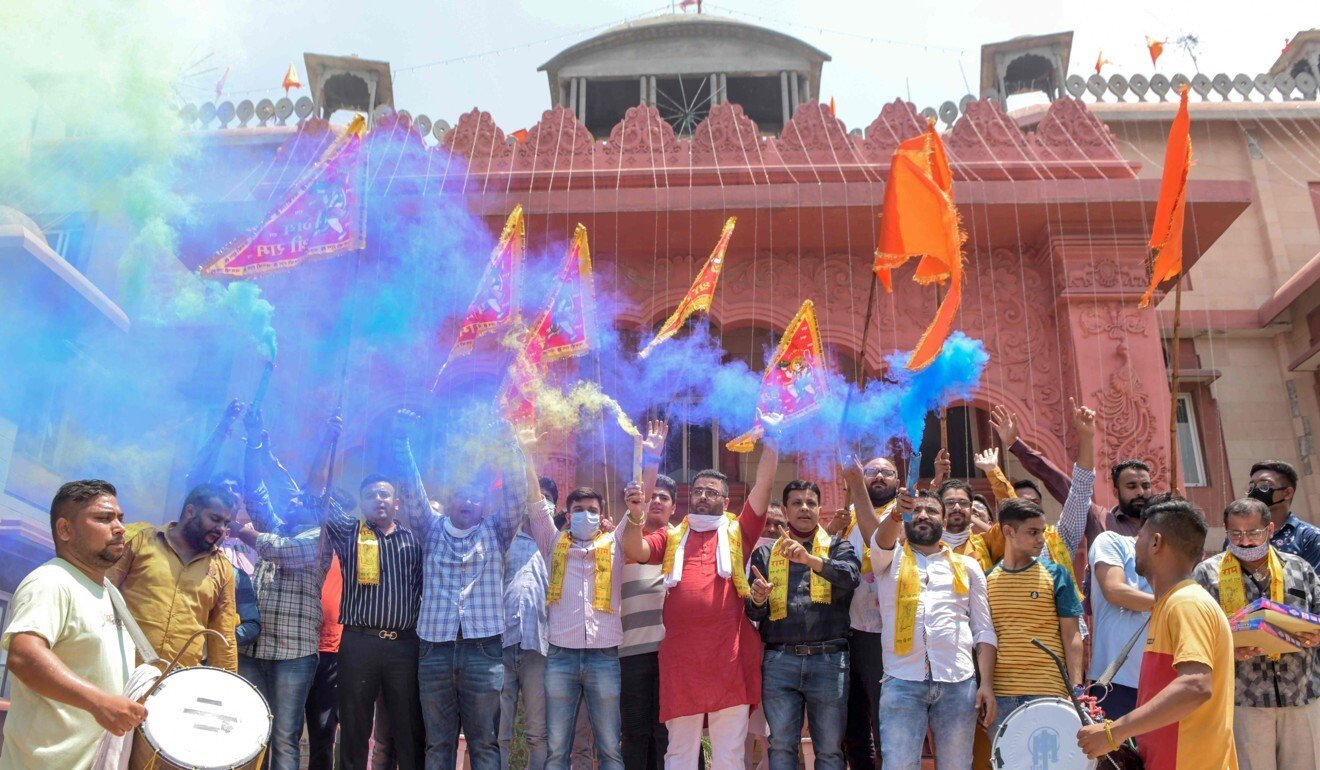
The main roads were barricaded and about 3,000 paramilitary soldiers were guarding Ayodhya city, where all shops and businesses are closed. Last week, a priest and 15 police officers at the temple site tested positive for the coronavirus, which has infected 1.9 million people in India and killed more than 39,000.
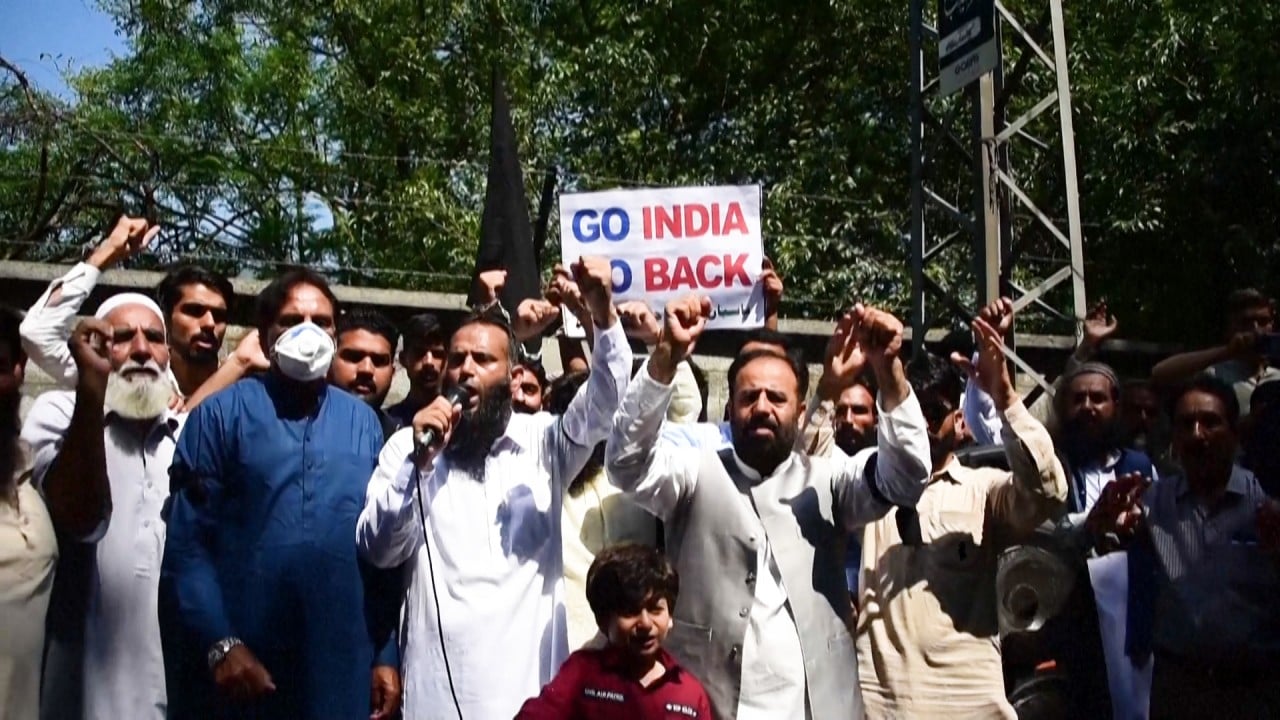
Anniversary of loss of special status for Indian-held Kashmir sparks protests on Pakistan side
“Had this function been held on normal days all these roads would have been chock-a-block with people. Millions of people would have come to Ayodhya to witness this historic event,” temple priest Hari Mohan said.
Only 175 religious saints, priests and Hindu and Muslim community representatives were invited to the ceremony.
Meanwhile, authorities blanketed Indian-administered Kashmir with troops, who laid out barbed wire and set up road blacks to prevent demonstrations.
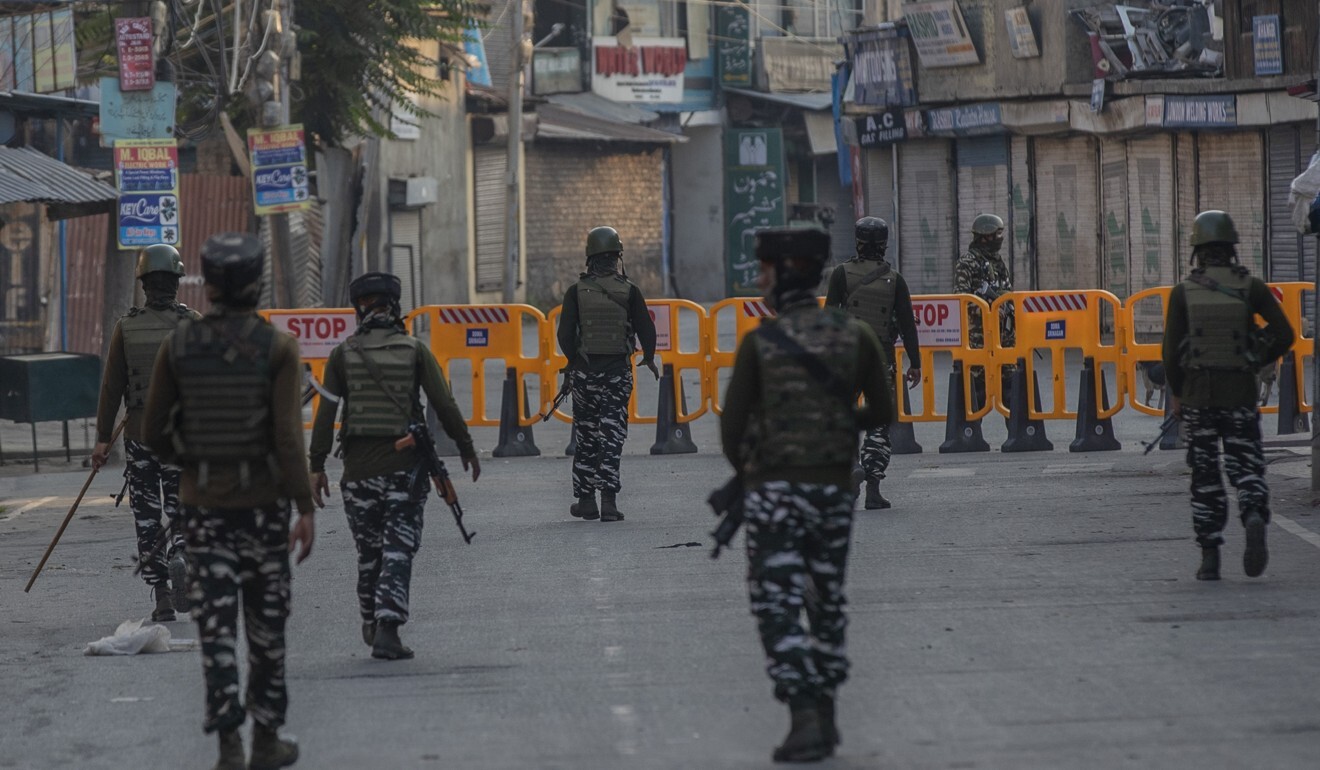
The government said last year’s change of status for the strife-torn region was necessary for its development and to integrate it with the rest of India, but it infuriated many Kashmiris and neighbouring Pakistan.
Some critics saw it as part of a pattern by the BJP aimed at sidelining Muslims. The government denies that.
Pakistani Prime Minister Imran Khan on Wednesday branded India an “oppressor and aggressor”, with protests planned across his country to mark the anniversary of the Kashmir move.
“India stands exposed before the world, yet again, as an oppressor and aggressor,” Khan said in a statement.
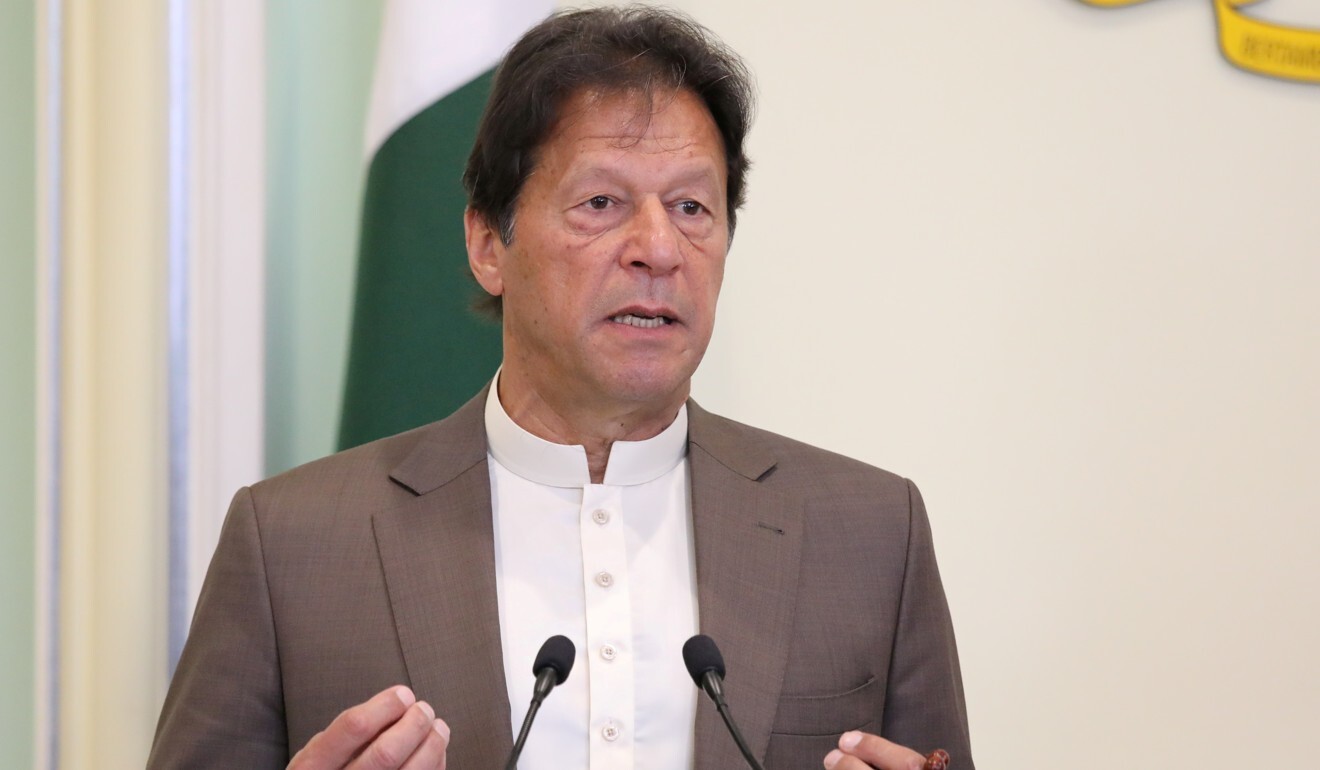
“Its so-called secular and democratic credentials stand fully discredited,” he added, calling India’s action last year a “crime against humanity”.
In Ayodhya, Wednesday’s groundbreaking follows a ruling by India’s Supreme Court last November favouring the building of a Hindu temple on the disputed site. Hindus believe their god Ram was born at the site and claim Muslim Emperor Babur built a mosque on top of a temple there.
The Babri Masjid mosque was destroyed by Hindu radicals with pickaxes and crowbars in December 1992, sparking massive Hindu-Muslim violence that left some 2,000 people, mostly Muslims, dead. The Supreme Court’s verdict allowed a temple to be built in place of the demolished mosque.
Those invited to the groundbreaking ceremony include Iqbal Ansari, the main Muslim litigant in the Supreme Court case, who now supports building the temple in Ayodhya.
Clearly, it’s full speed ahead with the Hindu nationalist agenda
For his fans, both the temple and the Kashmir move confirm Modi – elected to a second-straight term in a landslide last year – as a decisive, visionary and heroic leader, and India’s most important in decades.
His critics see him as remoulding the officially secular country of 1.3 billion as a Hindu nation at the expense of India’s 200 million Muslims, and taking it an authoritarian direction.
“Modi has certainly been India’s most transformative leader in recent memory,” said Michael Kugelman, senior associate for South Asia at the US-based Wilson Centre think tank, making him “wildly popular, but also highly controversial and quite divisive”.
A masked Modi, 69, shared the stage with the head of the RSS, the militaristic hardline Hindu group that is parent to the BJP and which Modi joined as a young man.
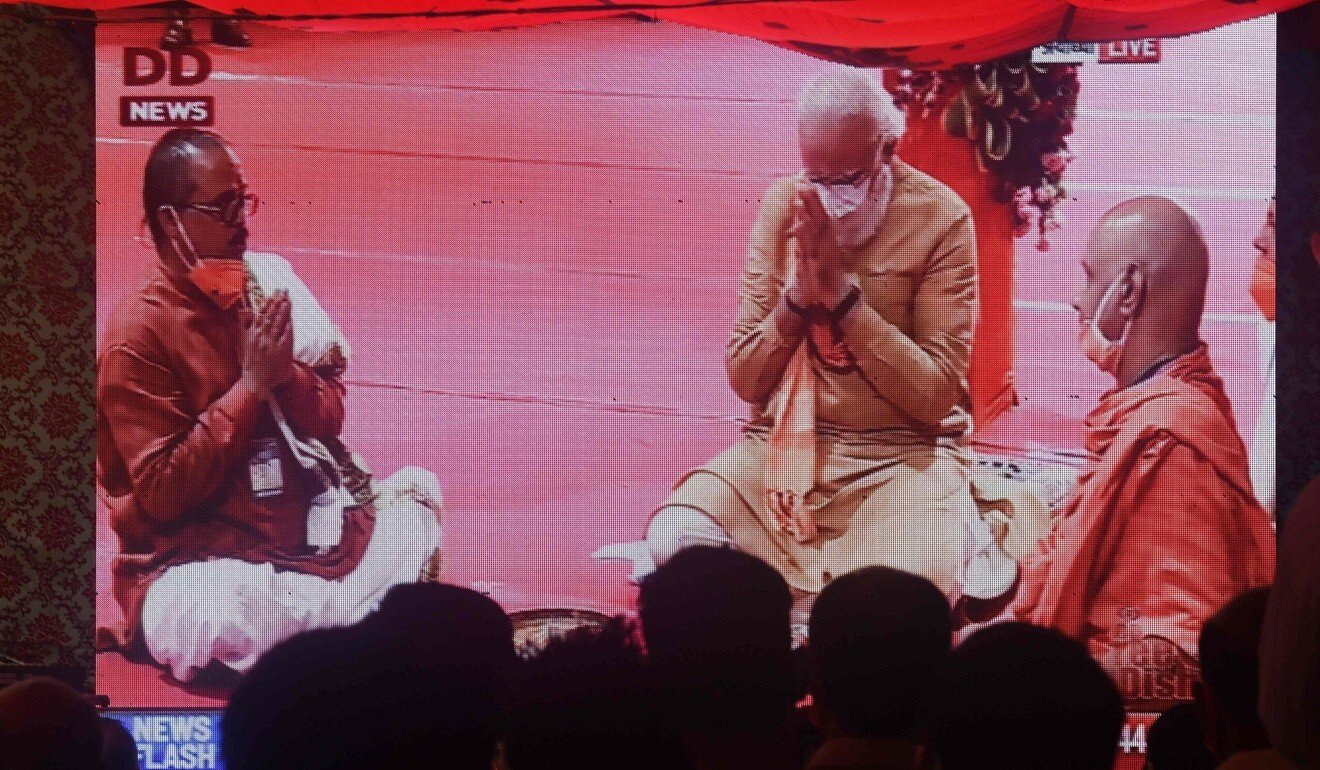
“Not only mankind, but the entire universe, all the birds and animals, are enthralled by this golden moment,” chanted the main priest.
“[Modi] is going to make his position permanently in history purely on the strength of this temple,” said his biographer Nilanjan Mukhopadhyay.
Other actions have also alarmed Modi’s critics and delighted his fans.
Last year, a new law made it easier for millions of immigrants from three neighbouring countries to get citizenship – but not if they are Muslims.
More moves may be in the pipeline, including a mooted nationwide register obliging people to prove they are Indian, and a uniform civil code doing away with Islamic rules in areas such as marriage.
“Clearly, it’s full speed ahead with the Hindu nationalist agenda,” Kugelman said.
Reuters, Agence France-Presse, Associated Press